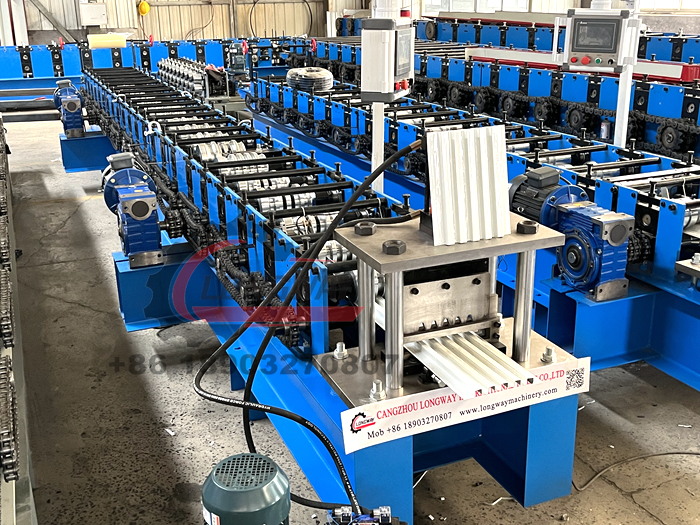steel stud roll forming machine supplier
Understanding the Steel Stud Roll Forming Machine A Comprehensive Guide
In the construction industry, the demand for efficient, robust, and versatile building materials is ever-increasing. Among the myriad of options available, steel studs have emerged as a preferred choice for framing due to their strength, durability, and lightweight nature. A pivotal component in the production of steel studs is the steel stud roll forming machine, a sophisticated piece of equipment designed to manufacture high-quality steel studs in an efficient manner. This article will delve into the significance of steel stud roll forming machines and highlight some of the leading suppliers in the market.
What is a Steel Stud Roll Forming Machine?
A steel stud roll forming machine is a type of industrial machinery used to convert flat steel sheets into steel studs by rolling them through a series of precisely aligned rollers. The process involves several key stages, including feeding the steel coil into the machine, shaping it through a series of rollers, cutting it to the desired length, and finally, collecting the finished products. The efficiency of this process directly correlates with the quality of the final product, making the machine an essential element for manufacturers in the construction sector.
Key Advantages of Steel Studs
Steel studs offer a range of advantages over traditional wooden studs. Firstly, they are not susceptible to issues such as warping, splitting, or insect damage, making them a more reliable choice for long-term construction projects. Additionally, steel studs are non-combustible, which enhances safety in various construction applications, particularly in commercial and industrial buildings. Their lightweight nature facilitates easier handling and installation, reducing both labor costs and project timelines.
Components of a Steel Stud Roll Forming Machine
A typical steel stud roll forming machine is equipped with several key components that work in harmony to ensure efficient production
1. Feeding System This section handles the steel coil feeding. It ensures that the material is fed into the machine accurately and evenly. 2. Roll Forming Section This is where the transformation happens. The steel coil passes through several rollers that shape it into the desired stud profile.
3. Cutting System After the steel is formed into shape, this component cuts it to specific lengths as required by the production specifications.
steel stud roll forming machine supplier

5. Output Section This area collects the finished studs and organizes them for further processing or delivery.
Choosing the Right Supplier
When considering the purchase of a steel stud roll forming machine, it is crucial to select a reputable supplier. Here are a few factors to consider
1. Experience and Reputation Look for suppliers with a proven track record in the industry. Companies that have been operational for many years and have a solid reputation are often more reliable.
2. Quality of Equipment Ensure that the supplier offers equipment made from high-quality materials and adheres to industry standards. Machines that require frequent repairs can be a significant drain on resources.
3. After-Sales Support Choose suppliers that offer strong after-sales service, including maintenance and repair. This support is crucial for minimizing downtime and ensuring smooth operations.
4. Customization Options Every construction project is unique. Suppliers that offer customization options for their machines can provide solutions tailored to specific production needs.
5. Price and Financing It's essential to find a balance between cost and quality. Some suppliers may offer financing options, making it easier to invest in high-quality equipment.
Conclusion
In summary, steel stud roll forming machines play an indispensable role in the manufacturing of steel studs for construction. Their efficiency and ability to produce high-quality materials make them a valuable investment for any construction company. By choosing the right supplier, businesses can ensure they have access to state-of-the-art machinery that not only enhances productivity but also provides a competitive edge in the market. As the construction industry continues to evolve, the importance of reliable and innovative manufacturing solutions will only grow, making steel stud roll forming machines a cornerstone of modern building practices.
-
Roof Panel Machines: Buying Guide, Types, and PricingNewsJul.04, 2025
-
Purlin Machines: Types, Features, and Pricing GuideNewsJul.04, 2025
-
Metal Embossing Machines: Types, Applications, and Buying GuideNewsJul.04, 2025
-
Gutter Machines: Features, Types, and Cost BreakdownNewsJul.04, 2025
-
Cut to Length Line: Overview, Equipment, and Buying GuideNewsJul.04, 2025
-
Auto Stacker: Features, Applications, and Cost BreakdownNewsJul.04, 2025
-
Top Drywall Profile Machine Models for SaleNewsJun.05, 2025








